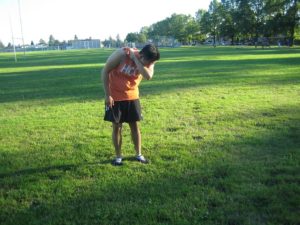Among those who have allergies, it increases the risk for developing sinus infections. Once an allergen comes in contact with the mast cells within the nose and sinuses, it triggers the release of histamine. This chemical is responsible for the congestion and inflammation in the nose and sinuses.
Once the mucous membranes in the sinuses become inflamed, they become swollen which disrupts normal drainage. The excess mucus that becomes thick can also contribute to the issue and the sinuses can end up blocked which results to pain and pressure. The incapacity of the sinuses to properly drain and the diminished air flow creates an environment suitable for the growth of bacteria. Once the microorganisms start to reproduce, the allergies are responsible for causing sinus infections.
Close look on sinus infections

The sinuses are empty hollows in the skull that are covered with mucous membranes. The mucous within the sinus cavities typically drain into the nasal passages and eventually out of the nose or into the rear part of the throat. Remember that allergies can alter this natural process and result to the development of sinus infections.
2 types of sinus infections
- Acute sinusitis typically lasts for 4 weeks or less and caused by allergies or common cold
- Chronic sinusitis persists for 3 months or even longer and most individuals are usually wrongly diagnosed with allergies when they essentially have chronic sinusitis.
How to prevent sinus infections if I have allergies?
Adequate management of allergies is vital in preventing the development of sinus infections. The 3 main aspects in preventing the progressing of allergies to sinus infection include the following:
- Nasal irrigation
- Monitoring of the symptoms
- Treating congestion
- Avoidance of the allergy triggers
In mild cases of congestion, they are managed with over-the-counter antihistamines. There are various forms of medications that claims not to trigger drowsiness. There are also options available in the market that are less sedative in nature.
The over-the-counter decongestants such as pseudoephedrine or nasal sprays are beneficial in managing the congestion. Nevertheless, these decongestants might trigger rebound congestion or even addiction if used longer than 3 days.
A humidifier can be used or even certain medications. An allergist must be consulted to perfume testing in determining the allergic trigger. The doctor can prescribe the right medications for allergies and administer allergy shots for those who are qualified and opt for this form of treatment. If the allergy symptoms do not rapidly resolve or do not respond to over-the-counter drugs, a doctor should be consulted.
